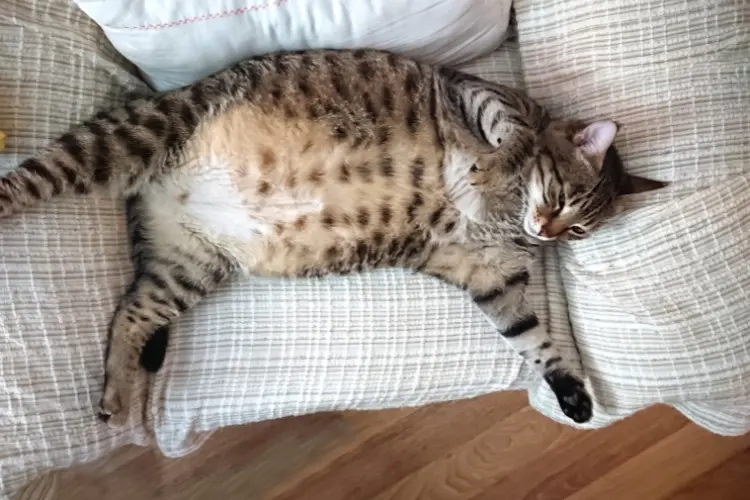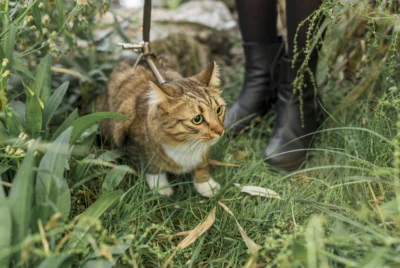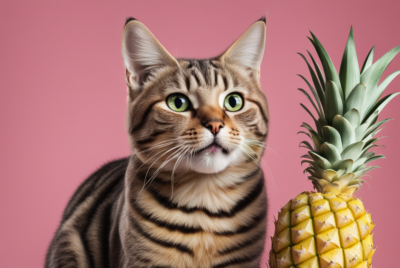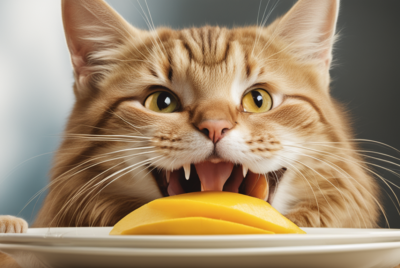Symptoms of Dead Kitten Inside Cat
Imagine the joy of your beloved cat giving birth to a litter of adorable kittens, only to discover that one or more of them did not survive inside their mother. It’s a heartbreaking situation that many cat owners have faced.
In this blog post, I will discuss the symptoms of a dead kitten inside cat, the causes, and what to do. By understanding these aspects, you can help safeguard the health of your feline friend and her offspring.
Eating Less Than Usual
A lack of appetite is one of the most common signs that a kitten has died inside a mother cat. This can sometimes cause distress for the cat that can be easily identified. The presence of a deceased kitten can occupy space in the cat’s stomach, which would normally be filled with food.
If you notice a decrease in your cat’s appetite after giving birth and suspect a dead kitten inside her, consult a veterinarian to eliminate other potential causes such as illness.
Bothered More by Light and Sound
An increased sensitivity to light and noise is another symptom associated with a dead kitten inside a cat. Potential causes of a stillborn kitten inside mother cats include infections, birth complications, or genetic factors.
Changes in Sleeping Habits
Restlessness, characterized by pacing, is a common indication of a cat with a deceased kitten inside. You should carefully observe the cat’s behavior to make an accurate diagnosis if you suspect a dead kitten inside her.

Blood in the Feces
Blood in a cat’s feces can suggest a variety of potential issues. These can range from food allergies, infections, and parasites, to reactions to medications, problems with the anal glands, or even trauma.
Other possible causes include inflammatory bowel disease, intestinal parasites, food intolerance, and colitis. More serious conditions such as bacterial infections and growths can also result in blood in the feces.
Traces of blood may be present in the litter box if the newborn kitten somehow dies inside the cat during the birthing process.
Changed Fur Coloration
Changed coloration is a symptom observed in cats with deceased kittens, wherein the fur may be seen to shift in hue, typically lightening or darkening. The indications of a change in coloration include a perceptible alteration in the hue of the cat’s fur, which may be paler or darker than normal.
The cause of altered coloration is uncertain, yet it is thought to be associated with the strain of carrying a deceased kitten within the feline. If you suspect a change in coloration in your cat, it is advised to seek advice from a veterinarian promptly.
The veterinarian can aid you in determining if the color alteration is due to a dead kitten inside the cat or another medical issue.
Vomiting
It is possible that the mother cat is experiencing both physical discomfort and psychological stress as a result of carrying a dead fetus in their uterus, which could be the cause of their vomiting. Blood, bile, or a combination of both may be observed as vomit in mother cats with dead kittens inside them.
The potential causes of vomiting in mother cats with dead kittens inside them may include stress, physical discomfort, and infection.
Weight Loss
Unexplained weight loss is a symptom of a dead kitten inside a cat, typically characterized by a sudden and significant decrease in weight. Unexplained weight loss may be caused by infection, birth complications, and genetic factors.
Not Interested in Surroundings
When a mother cat displays a lack of interest in her environment, it may indicate that she is mourning the loss of a kitten. Additionally, she may become less active and less interested in playing. A mother cat may become reclusive and shun people, likely grieving the loss of her kitten.
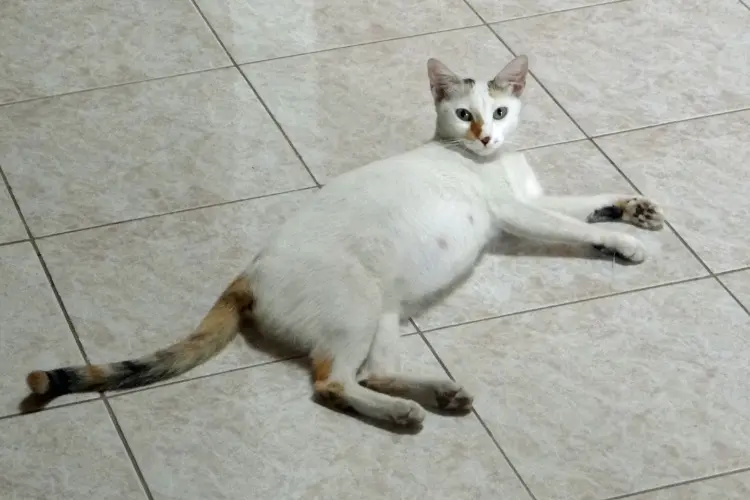
Acting Unusually or Weirdly
Strange behavior in cats can be attributed to a variety of factors. You might notice your feline friend bouncing off the walls, head bumping, chattering, chewing on strange objects, napping in tight places, excessively grooming, pacing, or showing aggression.
These behaviors might seem peculiar to us, but they are uncommon in the feline world. Excessive vocalization, pacing, head bumping, chewing on unusual objects, sleeping in confined spaces, excessive grooming, and aggression can all indicate unusual behavior in cats.
However, it’s important to understand that various factors such as vestibular disease or ataxia can lead to strange behavior in cats. If you notice any of these behaviors in your cat, don’t panic.
There are available treatments for unusual behavior in cats that can include environmental enrichment, behavior modification, and medications. But as always, if you’re worried about your cat’s behavior, it’s best to consult with a veterinarian.

Changes in the Litter Box
A mother cat may exhibit increased modifications to her litter box when there is a dead kitten inside her. It is possible that the mother cat is attempting to inter the deceased kitten or is seeking a more suitable location to deliver her litter.
Feeling More Thirsty and Hungry
One of the symptoms of a dead kitten inside a mother cat is increased thirst and hunger. This is characterized by the cat showing an increase in the consumption of both water and food compared to their usual intake.
This heightened need for sustenance could be due to various factors such as diabetes, parasitic infections, hyperthyroidism, or kidney disease. If you observe increased water consumption, increased food intake, and a heightened appetite in your cat, it might be a sign of a dead kitten inside the mother cat.
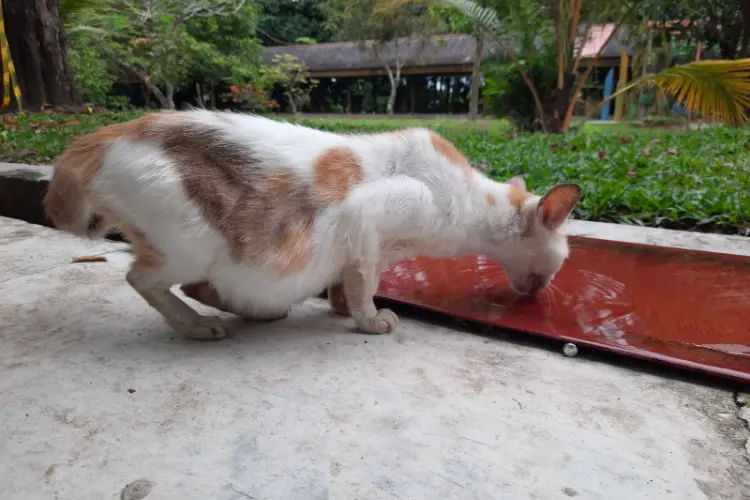
Needing More Sleep
A cat with a dead kitten inside may sleep more than usual. It is crucial to monitor your cat’s sleeping habits if you suspect a dead kitten inside her. The increased energy expenditure to support the kittens is the cause of cats sleeping more when they have kittens inside them.
Shifting Things Around
Cats with a deceased kitten inside may exhibit odd behavior regarding rearranging objects, such as moving toys or household items from one place to another. The potential cause of this behavior is uncertain, but it could be linked to the stress of carrying a deceased kitten inside the mother cat.
Less Grooming
Cats with a dead kitten inside may exhibit reduced grooming habits, including not licking their fur, not cleaning their face, and not cleaning their paws. This could be a sign that the cat is in pain or not feeling well due to the presence of the deceased kitten’s body.

Increased Aggression or More Hostile
A mother cat with a dead kitten inside may exhibit increased aggression, especially when trying to protect her surviving kittens from potential threats or other cats.
Close observation of your cat’s behavior is necessary if you suspect increased aggression, and you should seek veterinary advice if required.
Common Causes of Dead Kittens Inside Mother Cats
Infections
Infections can play a significant role in causing dead kittens inside mother cats. Some examples of specific infections that can lead to this problem include feline panleukopenia virus, panleukopenia virus (also referred to as distemper in cats), or feline herpesvirus.
Infection of the uterus is the most commonly observed factor in causing miscarriages in cats. Proper care and regular veterinary check-ups are vital to minimizing the risk of infections resulting in intrauterine kitten death.
Birth Complications
Birth complications can also lead to the tragic circumstance of dead kittens inside mother cats. These complications can include various issues such as obstruction of the birth canal, problems with the umbilical cord, congenital abnormalities, or even malnutrition of the mother cat.
It is essential to provide a safe birthing environment for your cat, especially during the birthing process.
Genetic Factors
Genetic factors can also contribute to the occurrence of dead kittens inside mother cats. Umbilical cord issues and congenital malformations are potential examples of genetic factors that can lead to the demise of kittens within the mother cat.
It is important for pet owners to consult with a veterinarian to evaluate any potential genetic risks when breeding cats.
What to Do if You Suspect a Dead Kitten Inside Your Cat
Monitor Your Cat’s Condition
Close observation of your cat’s condition is necessary if you suspect a dead kitten inside her. Watch for any of the mentioned symptoms.
Consult with a Veterinarian
When you suspect a dead kitten inside your cat, consulting with a veterinarian is vital. The veterinarian can:
Evaluate the situation
Perform diagnostic tests
Suggest treatment options
Check the mother cat for infections that might risk the health of the other kittens.
If you suspect that there is a dead kitten inside your cat, don’t hesitate to seek veterinary advice. Seeking help will make sure that the problem can be resolved in a timely fashion.
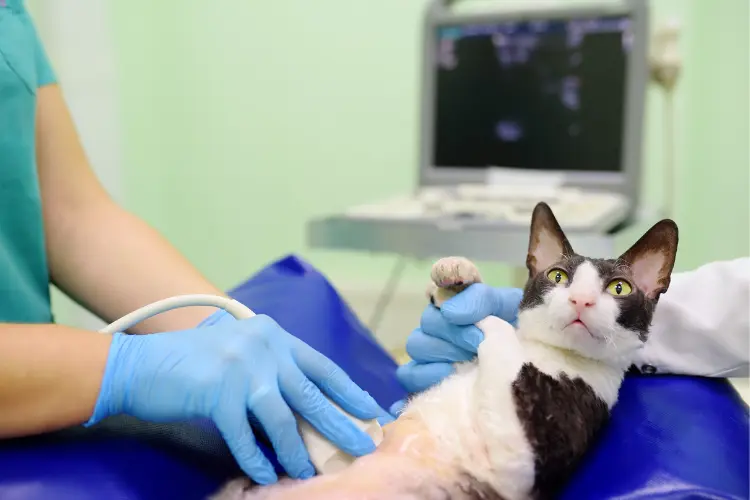
Follow Veterinary Recommendations
After consulting with a veterinarian, adhering to their recommendations is vital. They will suggest the best action plan tailored to your cat’s unique situation.
Prevention Measures to Avoid Dead Kittens Inside Cats
Regular Veterinary Check-ups
Regular veterinary check-ups facilitate early detection of health issues and ensure your cat’s overall well-being. During these check-ups, veterinarians usually examine the overall appearance, body condition, and check for any abnormalities or signs of discomfort.
A pregnant cat should be examined by a veterinarian at least once to ensure that the process is progressing normally.
Proper Nutrition and Care
Ensuring your cat receives proper nutrition and care is vital for their overall health and well-being. Proper nutrition helps cats maintain a healthy weight, and adequate care can reduce the likelihood of illnesses and other health problems.
It is also necessary to:
Provide a stress-free environment for the mother cat during pregnancy
Vigilantly monitor the mother cat for any indications of illness or infection
Seek advice from a veterinarian regarding suitable intakes for an expectant mother cat.
Safe Birthing Environment
Creating a secure birthing environment for your cat is of utmost importance, as it helps reduce the risk of complications during birth, such as stillbirths, infections, and other health issues.
To ensure a secure birthing environment for your cat, provide a clean, tranquil, and comfortable area for the mother cat to give birth. Furthermore, it is essential to observe the mother cat’s health and supply her with the appropriate nutrition and care before cat gave birth.
Read also: Top 10 Warning Signs When Introducing Cats
Wrapping It Up
Understanding the symptoms, causes, and actions to take if you suspect a dead kitten inside your cat is essential for the well-being of both the mother cat and her kittens. You can help prevent such situations and ensure the health and happiness of your feline companion and her offspring. Remember, the love and care you provide for your cat will be repaid tenfold through a lifetime of companionship and affection.

